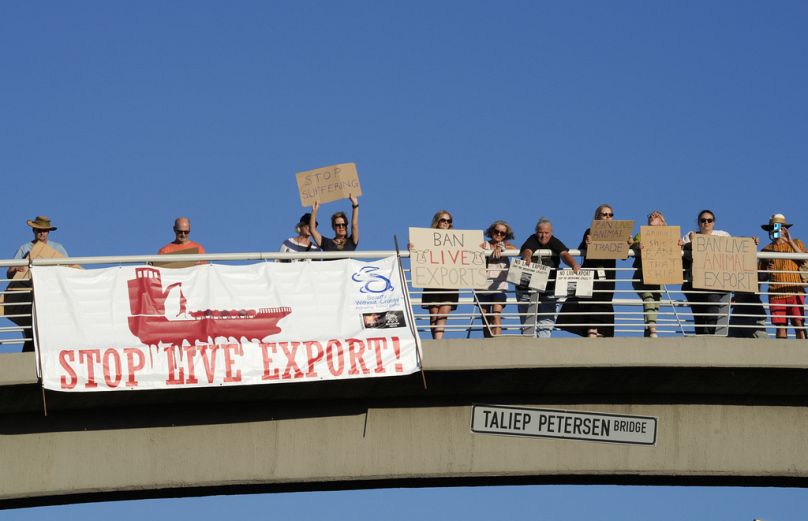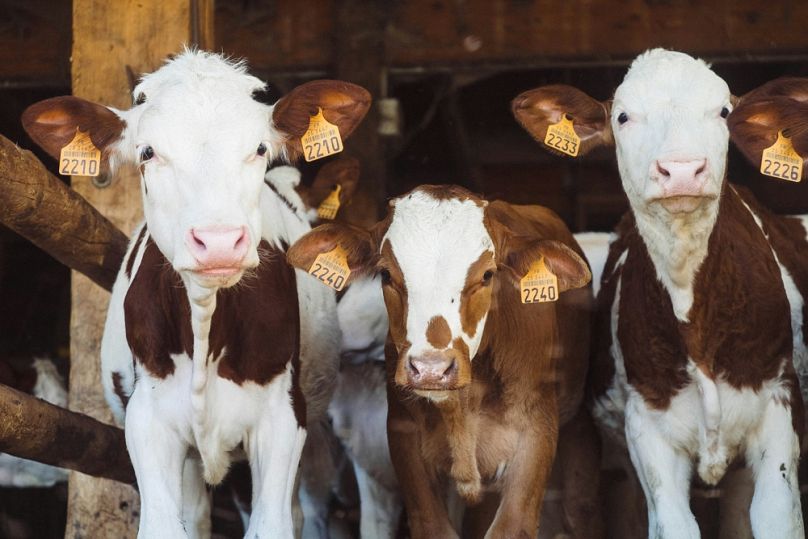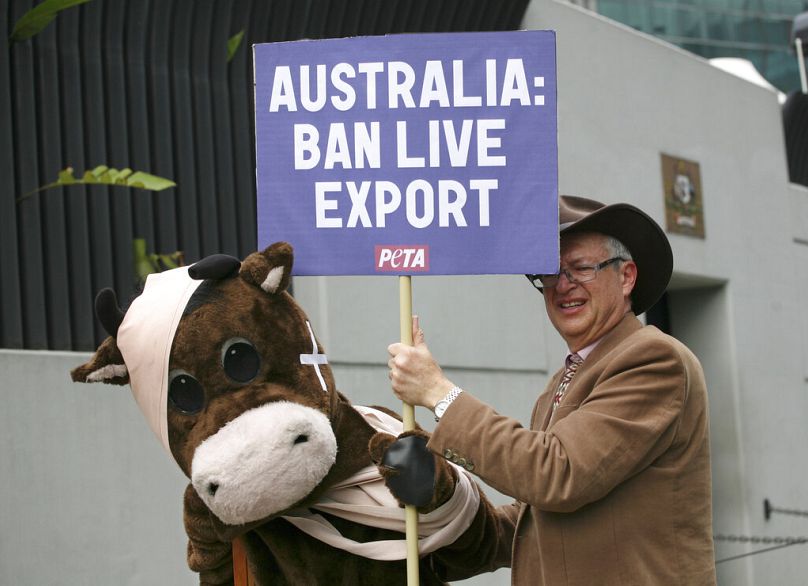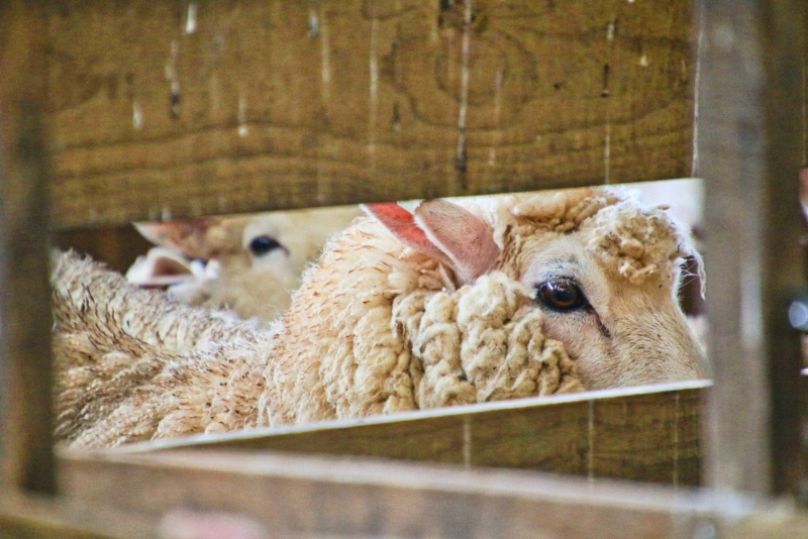As animal rights groups react in horror to the discovery, what is the situation on live exports around the world?
Cape Town experienced a particularly foul stench earlier this week. The reason? A ship docked in the South African city’s harbour, carrying 19,000 live cattle.
The vessel was stopped on its way from Brazil to Iraq and the smell emanating from it has caused Cape Town authorities to open an investigation.
Initially, officials suspected that a sewage facility may have leaked, before the source of the stench was discovered.
It was only a temporary stopover, to the relief of residents - and, on Wednesday, the vessel headed on to its destination of Iraq.
However, while in South Africa, the ship - whose occupants will likely be fattened up or slaughtered upon reaching their journey's end - immediately became a target of serious criticism by a number of animal welfare groups.
The National Council of the Society for the Prevention of Cruelty to Animals (SPCA) said it managed to send a veterinary consultant onboard the ship to assess the welfare of the animals.
The SPCA said they are strongly opposed to the export of live animals by sea, adding, “this smell is indicative of the awful conditions the animals endure, having already spent 2 1⁄2 weeks onboard, with a build-up of faeces and ammonia.”
“The stench onboard is unimaginable, yet the animals face this every single day,” they added, saying that the Kuwaiti-flagged livestock vessel had docked in Cape Town to load feed for the cattle.
South Africa's Democratic Alliance political party, which governs Cape Town, also stepped in to condemn the transport of live cattle through South Africa and the wider world.
“Live export, as evidenced by this situation, exposes animals to perilous conditions such as dangerous levels of ammonia, rough seas, extreme heat stress, injuries, dirty environments, exhaustion, and even death,” the party said.
It’s not the first time that animals being transported by sea have been in the news this month. Earlier in February, a ship carrying more than 16,000 cattle and sheep became stranded at sea for nearly a month due to the attacks by Houthi rebels in the Red Sea.
That vessel also came under scrutiny for animal cruelty - but veterinarians found no significant health and welfare issues among the livestock on board.
Eventually, the ship was forced to return to its home of Australia, a country known as one of the world’s largest exporters of live sheep and cattle.
Where do other countries stand on live exports?
Are live exports allowed in the European Union?
It’s estimated that more than eight million farm animals are transported long distances within the EU every year - and many of these journeys take three days or more. These voyages are regulated by the European Council.
Annually, though, over three million cattle, sheep and pigs are exported from the EU to other countries, with many destined for Turkey, the Middle East and North Africa.
While the EU does afford these animals some legal protection, that comes to an end as soon as they exit the bloc. As a result, there have been reports - by the likes of Compassion in World Farming - that they “may be forced to endure squalid housing, brutal handling, torturous restraint systems, and slow, painful slaughter.”
The position of EU countries naturally varies, but some are more against the practice than others.
In September 2020, Dutch former Agriculture Minister Carola Schouten requested the EU Agriculture and Fisheries Council to adjust animal welfare regulations and limit the transport of livestock for slaughter.
The same year, a German regional court prohibited the live exportation of 132 breeding heifers, saying the conditions under which they would be slaughtered in Morocco would be "inhumane".
Australia and New Zealand
It’s estimated that Australia exports around 3 million sheep and cattle every year, mostly to Asia and the Middle East.
Total exports to Indonesia have decreased significantly in recent years, partly due to the Australian ESCAS (Exporter Supply Chain Assurance Scheme) finding evidence of cruelty to Australian cattle in the south east Asian nation.
Now, they mostly send live animals to Israel, Malaysia, Japan, Mexico and China.
Since 2003, Australia's live export industry has experienced significant scrutiny by animal welfare groups since. The Australian RSPCA, opposed to live export in any form, reported that more than 550,000 animals died en route during live export journeys between 2000–2012.
In 2006, a Freedom of Information request discovered sheep who died en route most frequently lost their lives due to factors including heat stress, septicaemia and acute pneumonia.
However, the practice may soon be a thing of the past in Australia. In March last year, the Australian government announced plans to phase out live sheep exports by sea.
In April 2023, New Zealand brought in a ban on all live exports by sea for cattle, sheep, deer and goats for slaughter, fattening and breeding. This was hailed as a huge step forward for animal rights by campaigners.
Live exports in the United Kingdom (excluding Ireland)
In the mid-1990s, the UK exported millions of animals to be slaughtered or fattened in Europe and beyond.
By 2020, these numbers had significantly decreased - to tens of thousands a year.
Post-Brexit, a lack of required control posts at Calais effectively blocked the only route that was being used to export live animals directly from Britain to the European continent.
Despite this, live exports remain legal and could recommence at any time using a different route - or via Calais if changes were made.
In June 2021, the UK Government introduced the Animal Welfare Bill, which would have banned live exports for slaughter or fattening from or through Great Britain - but it soon stalled and, in May 2023, lawmakers announced the Bill was being dropped.
After pressure from animal rights campaigners, the government announced they would introduce a new Bill to totally outlaw live exports.
Republic of Ireland and Northern Ireland
Northern Ireland sends around 20,000 live calves to the European continent on a yearly basis.
While Northern Ireland is part of the wider UK, post-Brexit trade agreements have meant that Northern Ireland must comply with intra-EU free trade rules. That means that a Northern Irish ban on live exports is not likely any time soon.
The Republic of Ireland, part of the EU, exports several hundred thousand cattle every year to mainland Europe and the Middle East.
Animal rights activists have expressed concerns that further animals are re-exported to countries outside of the EU, like Lebanon, Turkey and Algeria.
There are fears that slaughter in these regions could be in breach of the World Organisation for Animal Health's international standards.















